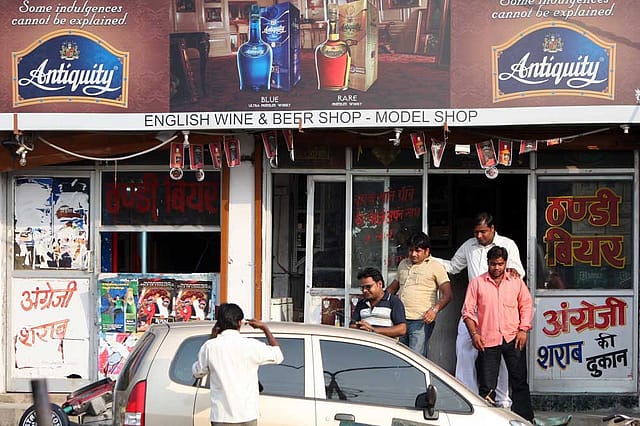The Road Soberly Taken

INDIAN ROADS HAVE had, like Indians themselves, a great tolerance for pain. They are born to sometimes die quickly, often to live long unhealthy malnutritioned lives, and for a very few, an actualised fruitful life of smooth asphalt. To the onerous fate of all of them has now been added an identity crisis. Whether a liquor shop should be present in its vicinity is none of the road's concern, but is it not unfair that such an extraneous consideration should put its character itself to question?
A number of states are mulling over making highways into not-highways merely by the stroke of a pen. This is in answer to a stroke of a Supreme Court pen that said no liquor vends can operate within 500 metres of a highway. The denotifying of highways by governments is ingenious or cunning, depending on how you look at it. It serves both their private and public ends. The revenue from liquor which accrues to states will be saved. Plus there will be a long line of bar owners with bribes to turn the roads into non-highways. In future, any government that wants to punish a bar owner simply has to perform the reverse action, of arbitrarily making a road a highway.
To appreciate how strange this denotification strategy is, consider an analogy of the Supreme Court's orders to reform the BCCI. Now imagine if the BCCI decided to name itself DDDB and said that therefore nothing that the Supreme Court said applies to it. Or if Subrato Roy, when he was jailed for contempt and asked to cough up Rs 24,000 crore, should change his name and say, 'Let Subrato Roy go to jail, why should I?'
The political establishment now coolly tries to absolve itself of responsibility in what the Supreme Court has ordered. Even if much of the criticism of the order is sound, the blame for it must rest on the executive arms themselves. For years they have been recommending this measure, we just didn't know it. Consider these extracts from the Supreme Court order:
AIming High
20 Feb 2026 - Vol 04 | Issue 59
India joins the Artificial Intelligence revolution with gusto
• 'We are conscious of the fact that the policy of the Union government to discontinue liquor vends on national highways may not eliminate drunken driving completely.'
• 'The court must accept the policy of the Union government for more than one reason.'
• 'Second as we have seen, this view of the Union government is based on statistics and data which make out a consistent pattern year after year… makes it abundantly necessary to enforce the policy of the Union government to safeguard human life.'
The Supreme Court merely affirmed that it is a sound policy using all the arguments provided to it by government bodies like National Road Safety Council and the Transport Research Wing of the Ministry of Road Transport and Highways. It is these faceless bureaucrats who made these reports whose assertions remained undebated until it was too late. It is towards them that all upright alcoholics must direct their anger.
